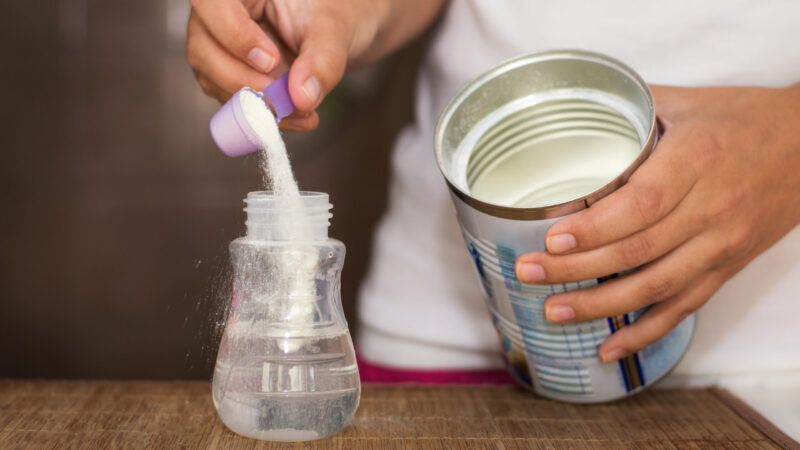America's Baby Formula Rules Are Due for an Update
A new effort called Operation Stork Speed aims to fix outdated FDA rules that block alternative baby formulas from reaching U.S. shelves.

Israeli company Else Nutrition created a vegan baby formula after the cofounder's granddaughter was unable to tolerate breastmilk and was allergic to every type of formula on the market. It's become popular in Israel and is sold as far away as Australia. But the company can't sell its infant formula in the United States due to nutritional requirements set by the U.S. Food and Drug Administration (FDA).
Now, Else Nutrition is putting its hopes in Operation Stork Speed, an initiative from Department of Health and Human Services Secretary Robert F. Kennedy Jr., aimed at "beginning the nutrient review process and increasing testing for heavy metals and other contaminants," and "encouraging companies to develop new infant formulas."
America's baby formula rules are due for an update. The current rules were set by the Infant Formula Act of 1980, with only minimal updates since then. The last major tweak to formula standards came in 2001 when the FDA allowed docosahexaenoic acid (DHA), a fatty acid critical to brain development, to be added if manufacturers wanted.
The FDA held a panel last month with clinicians and researchers who generally agreed that baby formula could be safely made to better mimic breastmilk with more varied ingredients than we use now.
"There are some basic things like iron, calcium, phosphorus that have a tremendous need to be [updated]," said Steven A. Abrams, a professor of pediatrics at the Dell Medical School at the University of Texas at Austin
This mirrors what's been happening for years in other countries, particularly in Europe. Formulas there have been manufactured with coconut oil instead of palm oil for climate-conscious parents. Health-focused parents, meanwhile, can find formulas without corn syrup.
But where the need for more options becomes most acute is for babies with medical issues. According to a 2023 study from the Centers for Disease Control and Prevention (CDC), approximately 5.8 percent of children in the U.S. have a food allergy. Babies with gastrointestinal issues have found relief from European formulas that have less iron, but American standards keep these options out of local grocery stores.
And the added sugars in some American formulas are now no longer just a concern of the Make America Healthy Again movement.
Michael Goran, professor of pediatrics and vice chair for pediatric research in the Keck School of Medicine at the University of Southern California, says fussy babies who are wrongly suspected of being lactose intolerant are usually given formulas with sucrose-based corn syrup solids.
Emerging research "is beginning to show that these non-lactose carbohydrates in formula are linked to a number of different outcomes," Goran said. These could include a higher risk of obesity, according to a study by Goran and other researchers.
It's crucial that more types of formula be available, not only for infants with dietary complications, but also to strengthen the supply chain. Despite American regulators' past hard line on foreign formulas, they opened the door to European formulas during the 2022 formula crisis. If that door can be opened during a crisis, it can stay open to give parents more options for caring for their babies.


Show Comments (78)